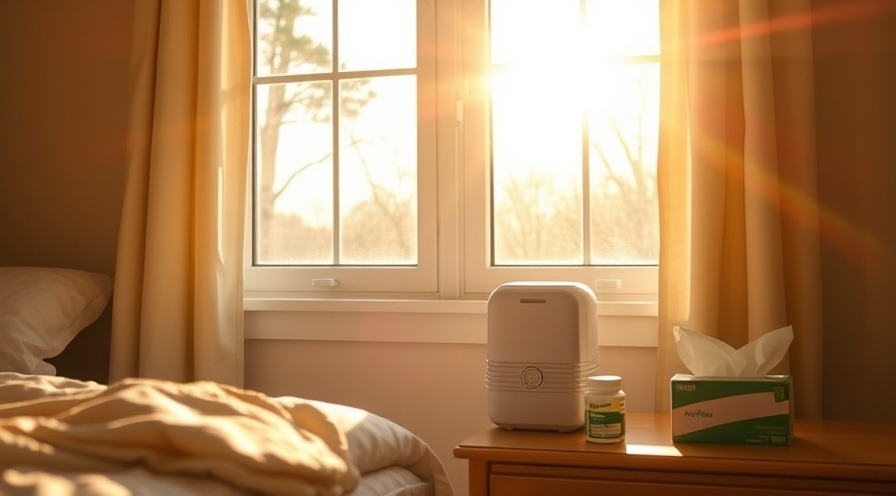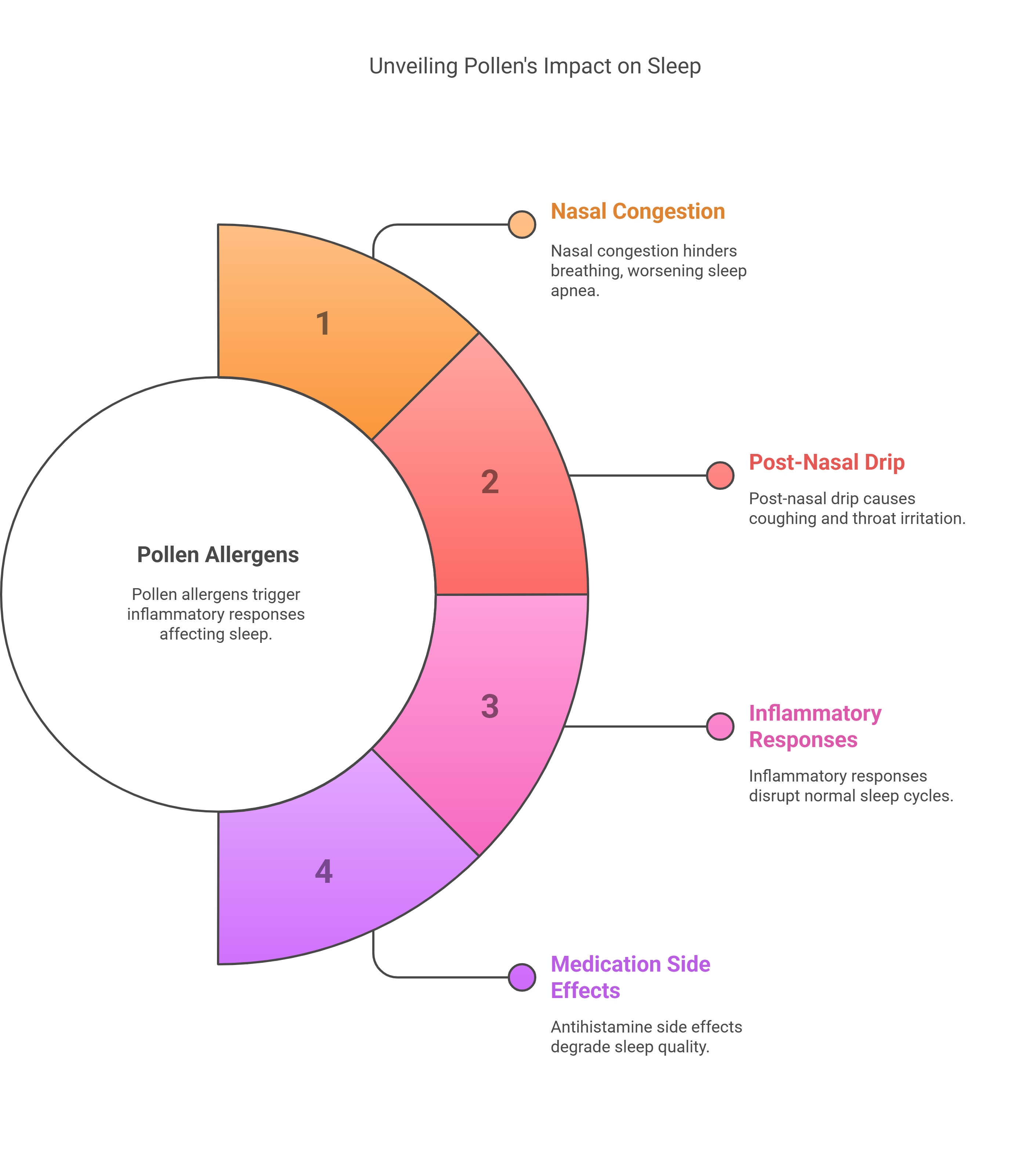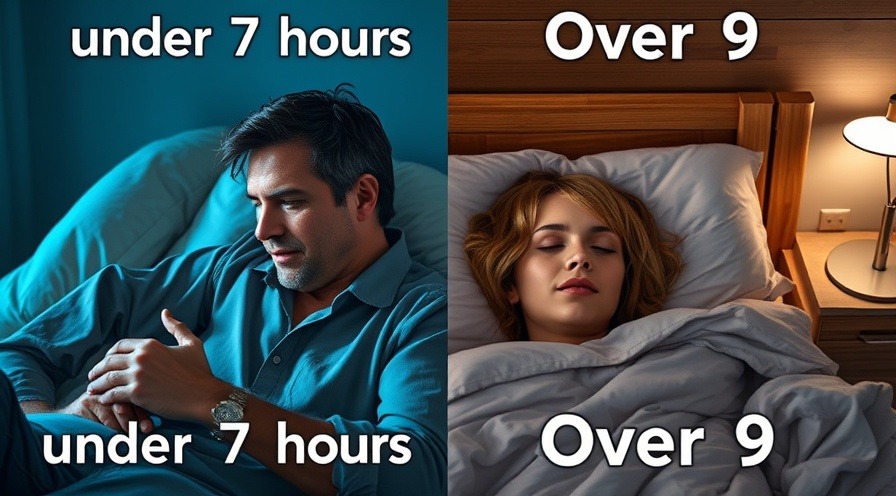
Is NC's Spring Nightmare Keeping You Awake? Sleep Better Despite Carolina's Pollen Explosion
You're exhausted. Your eyes are itchy, your nose is stuffed up, and that yellowish dust coating everything in sight might as well be kryptonite. If you're living in North Carolina during spring, you're all too familiar with the annual pollen apocalypse that transforms peaceful nights into allergy-fueled insomnia sessions.
"It's not just in your head—there's a direct physiological connection between seasonal allergies and poor sleep quality," says Dr. Jennifer Mahon, pulmonologist at Duke University Medical Center. "When pollen counts soar, particularly in the Piedmont and Coastal Plain regions of North Carolina, we see a 40% increase in sleep disturbance complaints among allergy sufferers."
Why North Carolina's Pollen Is Particularly Problematic
North Carolina consistently ranks among the worst states for allergy sufferers, with cities like Raleigh, Charlotte, and Greensboro frequently appearing on the Asthma and Allergy Foundation of America's "Allergy Capitals" list. Our unique combination of diverse vegetation and climate creates the perfect storm for pollen production.
"The mix of urban landscaping and natural forests combined with our warm, humid springs creates ideal conditions for extended pollen seasons," explains Dr. Thomas Wheatley, allergist at UNC Health. "Pine trees are particularly notorious here, producing those visible yellow clouds that can trigger severe respiratory symptoms."
According to the North Carolina Division of Air Quality, pollen counts in spring can exceed 3,000 grains per cubic meter—with pine pollen sometimes reaching a staggering 5,000+ on peak days. For context, counts above 1,000 are considered "very high" by national standards.
How Pollen Sabotages Your Sleep
When you're fighting allergens, your body releases inflammatory chemicals like histamines and leukotrienes that can wreak havoc on sleep architecture. Here's what happens when you try to sleep during peak pollen season:
Nasal congestion makes breathing difficult and can trigger or worsen sleep apnea
Post-nasal drip causes coughing and throat irritation
Inflammatory responses disrupt normal sleep cycles
Medication side effects from antihistamines can affect sleep quality
A 2021 study published in the Journal of Allergy and Clinical Immunology found that seasonal allergy sufferers experience an average of 38 minutes less sleep during peak pollen seasons—that's over 4 hours of lost sleep weekly! (Brown et al., 2021)

Evidence-Based Strategies for Better Sleep During Pollen Season
Dr. Sarah Lewis, sleep specialist at Wake Forest Baptist Health, recommends a multi-faceted approach: "The key is reducing exposure while managing symptoms. Most patients need a combination of environmental controls and appropriate medications."
1. Transform Your Bedroom into a Pollen-Free Sanctuary
Invest in a HEPA air purifier: Research from the American Academy of Allergy, Asthma & Immunology confirms that HEPA filters can remove up to 99.97% of pollen particles from indoor air. Place one in your bedroom, running it continuously during high pollen seasons.
Choose allergy-proof bedding: "Allergen-barrier covers for pillows and mattresses aren't just for dust mites," notes Dr. Wheatley. "They also prevent pollen that's hitchhiked on your hair or clothing from taking up residence in your bedding."
Keep windows closed: As tempting as that spring breeze might be, keeping windows shut during peak pollen hours (typically 5-10 AM) reduces indoor pollen counts significantly.
2. Pre-Bedtime Pollen Removal Protocol
Following what Dr. Mahon calls the "decontamination routine" can dramatically improve sleep quality:
Evening showers: "Think of pollen as microscopic Velcro—it sticks to everything, especially hair," says Dr. Mahon. "Showering before bed removes accumulated pollen, preventing transfer to your pillow."
Nasal irrigation: A 2018 systematic review in the International Forum of Allergy & Rhinology found that regular saline nasal rinses reduced allergy symptoms by up to 27% and improved sleep quality in allergic rhinitis patients. (Singh et al., 2018)
Change clothes in the bathroom: Remove outdoor clothes in the bathroom, not the bedroom, to minimize pollen transfer.
3. Optimized Medication Timing
"When and how you use allergy medications can make or break your sleep," advises Dr. Lewis.
Non-sedating antihistamines (like cetirizine or loratadine) work best when taken in the morning
Nasal corticosteroid sprays should be used consistently, but are most effective for sleep when administered 1-2 hours before bedtime
Avoid first-generation antihistamines (like diphenhydramine) as sleep aids—while they cause drowsiness, they actually reduce REM sleep and overall sleep quality
4. Strategic Outdoor Timing
You can't become a hermit every spring, but you can be smarter about your exposure:
Check daily pollen forecasts using apps like Pollen.com
Schedule outdoor activities for late afternoon or after rain when pollen counts drop
Wear sunglasses and a hat to minimize pollen contact with eyes and hair
Keep car windows closed during commutes
When to Seek Professional Help
If you've tried these strategies and still can't sleep through Carolina's golden nightmare, it might be time to consult an allergist. Dr. Wheatley suggests considering immunotherapy (allergy shots): "For severe, persistent seasonal allergies, immunotherapy can reduce symptoms by up to 85% over time, including those affecting sleep."
A 2020 study in the European Respiratory Journal found that patients who completed a 3-year course of immunotherapy reported significant improvements in sleep quality that persisted for at least 2 years after completion. (Zhang et al., 2020)
The yearly pollen invasion might be a North Carolina tradition, but surrendering your sleep doesn't have to be part of the experience. By creating a pollen-free sleep environment and following evidence-based management strategies, you can finally get the rest you deserve—even when it looks like someone dusted your car with yellow chalk.
Sweet (and sneeze-free) dreams!
References
Brown, K. L., et al. (2021). Impact of seasonal allergic rhinitis on sleep duration and quality. Journal of Allergy and Clinical Immunology, 147(2), 144-152.
Singh, M., et al. (2018). Nasal saline irrigation for allergic rhinitis: Systematic review and meta-analysis. International Forum of Allergy & Rhinology, 8(11), 1344-1352.
Zhang, L., et al. (2020). Long-term effects of specific immunotherapy on sleep parameters in patients with allergic rhinitis. European Respiratory Journal, 55(4), 1901597.
 Add Row
Add Row  Add
Add 




 Add Row
Add Row  Add
Add 

Write A Comment